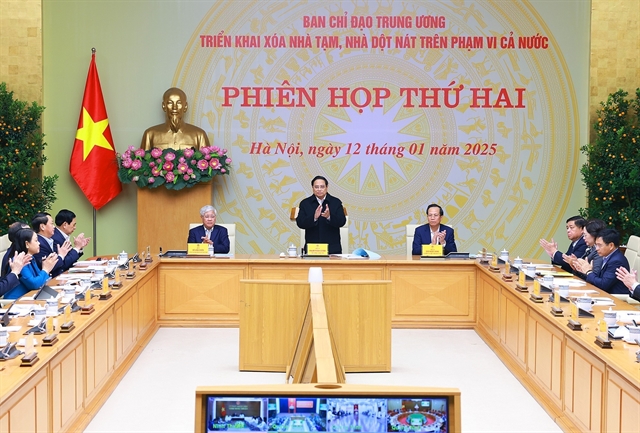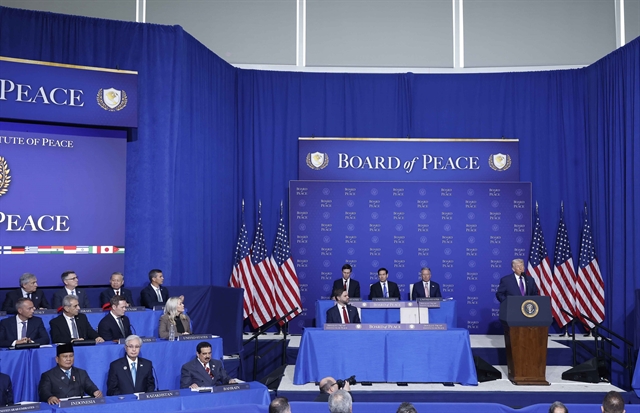 Opinion
Opinion
.jpg)
 |
| Prime Minister Phạm Minh Chính presides over the meeting on Sunday. — VNA/VNS Photo Dương Giang |
HÀ NỘI — Prime Minister Phạm Minh Chính on Sunday chaired the second meeting of the central steering committee for the eradication of temporary and dilapidated houses nationwide to assess the work in 2024 and put forward tasks for this year.
The event was held online and connected to over 8,600 points in all 63 provinces and centrally-run cities.
PM Chính, who is head of the committee, emphasised that 2025 is of special significance, serving as a year for acceleration and breakthroughs to successfully achieve the 5-year socio-economic development plan for 2021-25.
It is also a year marked by numerous important national events, such as the 95th founding anniversary of the Communist Party of Việt Nam, the 80th anniversary of the founding of the country, the 50th anniversary of the liberation of the South and national reunification, the 135th birthday of President Hồ Chí Minh, and the emulation movements towards the 14th National Party Congress.
Therefore, the successful implementation of the programme holds great significance, as it helps realise the Party's policies, and reflects the regime's inherent goodness of providing a prosperous and happy life for the people and ensuring that no one is left behind. This initiative prioritises social progress, fairness, and environmental protection over mere economic growth.
Furthermore, the programme reflects a strong commitment, significant effort, and decisive action from ministries, sectors, and localities in mobilising resources and organising the programme implementation; and demonstrates the active involvement of the entire political system, especially the grassroots level.
Since the first meeting of the central steering committee on November 10 last year, the country has completed and handed over more than 44,000 houses and is currently constructing 34,200 units. Approximately 240,000 houses need to be completed by the end of 2025, requiring extra efforts from all levels and sectors.
The Government leader requested participants to evaluate the implementation across ministries, agencies, and localities, share experiences and lessons learned, and candidly acknowledge the causes of shortcomings.
Additionally, they should clarify difficulties and obstacles, and propose key and breakthrough tasks and solutions to ensure the programme's completion in 2025, following the “5-clear” principle: "clear people, clear tasks, clear responsibilities, clear deadlines, clear results." — VNA/VNS
.jpg)



